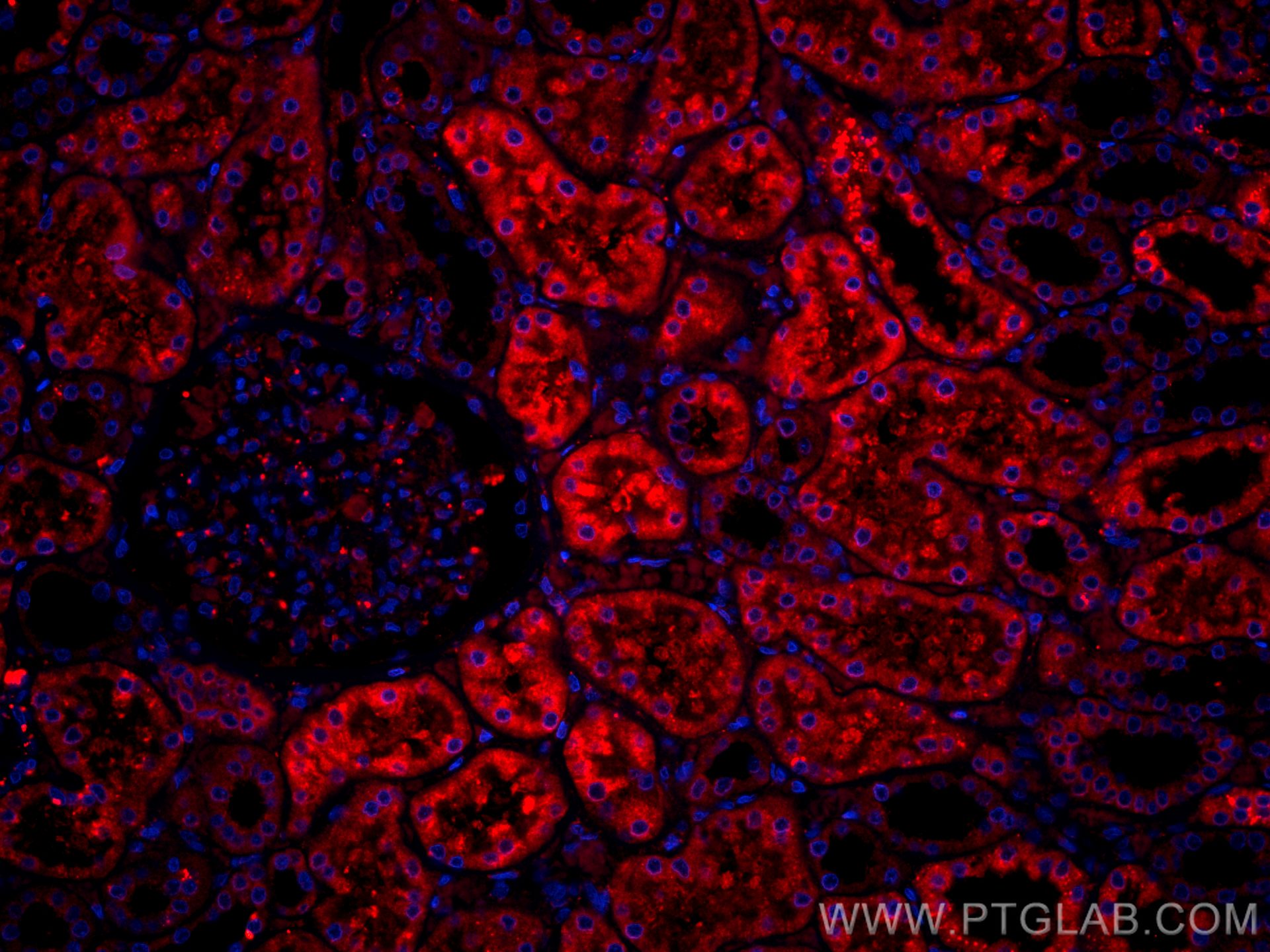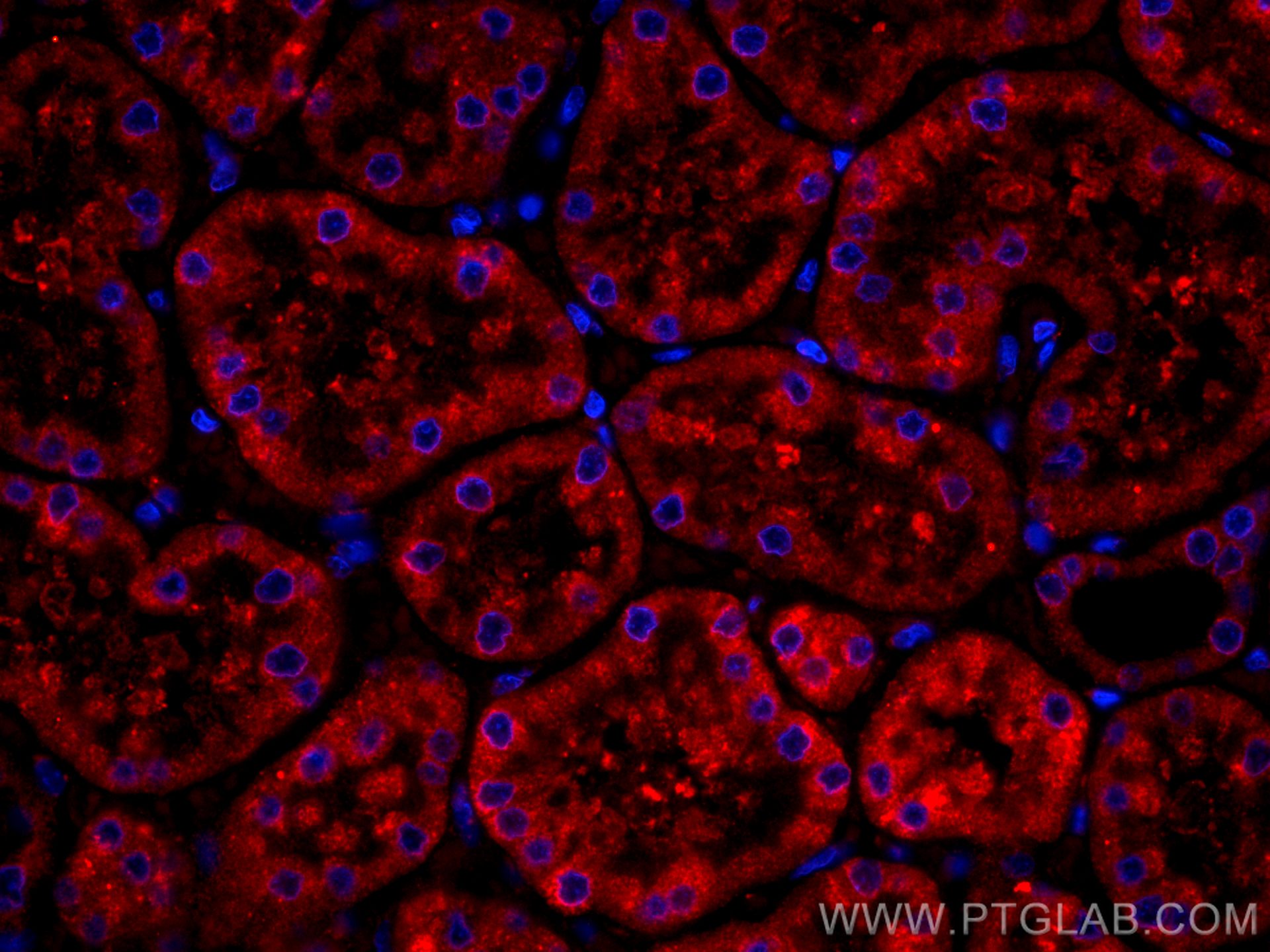验证数据展示
经过测试的应用
| Positive IF-P detected in | human kidney tissue |
推荐稀释比
| 应用 | 推荐稀释比 |
|---|---|
| Immunofluorescence (IF)-P | IF-P : 1:50-1:500 |
| It is recommended that this reagent should be titrated in each testing system to obtain optimal results. | |
| Sample-dependent, Check data in validation data gallery. | |
产品信息
CL594-66136 targets BBS5 in IF-P applications and shows reactivity with human, mouse samples.
| 经测试应用 | IF-P Application Description |
| 经测试反应性 | human, mouse |
| 免疫原 | BBS5 fusion protein Ag6844 种属同源性预测 |
| 宿主/亚型 | Mouse / IgG1 |
| 抗体类别 | Monoclonal |
| 产品类型 | Antibody |
| 全称 | Bardet-Biedl syndrome 5 |
| 别名 | Bardet Biedl syndrome 5, BBS5 |
| 计算分子量 | 39 kDa |
| GenBank蛋白编号 | BC044593 |
| 基因名称 | BBS5 |
| Gene ID (NCBI) | 129880 |
| RRID | AB_2919953 |
| 偶联类型 | CoraLite®594 Fluorescent Dye |
| 最大激发/发射波长 | 588 nm / 604 nm |
| 形式 | Liquid |
| 纯化方式 | Protein G purification |
| UNIPROT ID | Q8N3I7 |
| 储存缓冲液 | PBS with 50% glycerol, 0.05% Proclin300, 0.5% BSA , pH 7.3 |
| 储存条件 | Store at -20°C. Avoid exposure to light. Stable for one year after shipment. Aliquoting is unnecessary for -20oC storage. |
背景介绍
BBS5 encodes a protein that has been directly linked to Bardet-Biedl syndrome. Bardet-Biedl syndrome (BBS) is an autosomal recessive condition characterised by rod-cone dystrophy, postaxial polydactyly, central obesity, mental retardation, hypogonadism, and renal dysfunction. Other associated clinical findings in BBS patients include diabetes, hypertension and congenital heart defects. BBS expression varies both within and between families and diagnosis is often difficult. Experimentation in non-human eukaryotes suggests that BBS5 is expressed in ciliated cells and that it is required for the formation of cilia. Alternate transcriptional splice variants have been observed but have not been fully characterized.
实验方案
| Product Specific Protocols | |
|---|---|
| IF protocol for CL594 BBS5 antibody CL594-66136 | Download protocol |
| Standard Protocols | |
|---|---|
| Click here to view our Standard Protocols |

